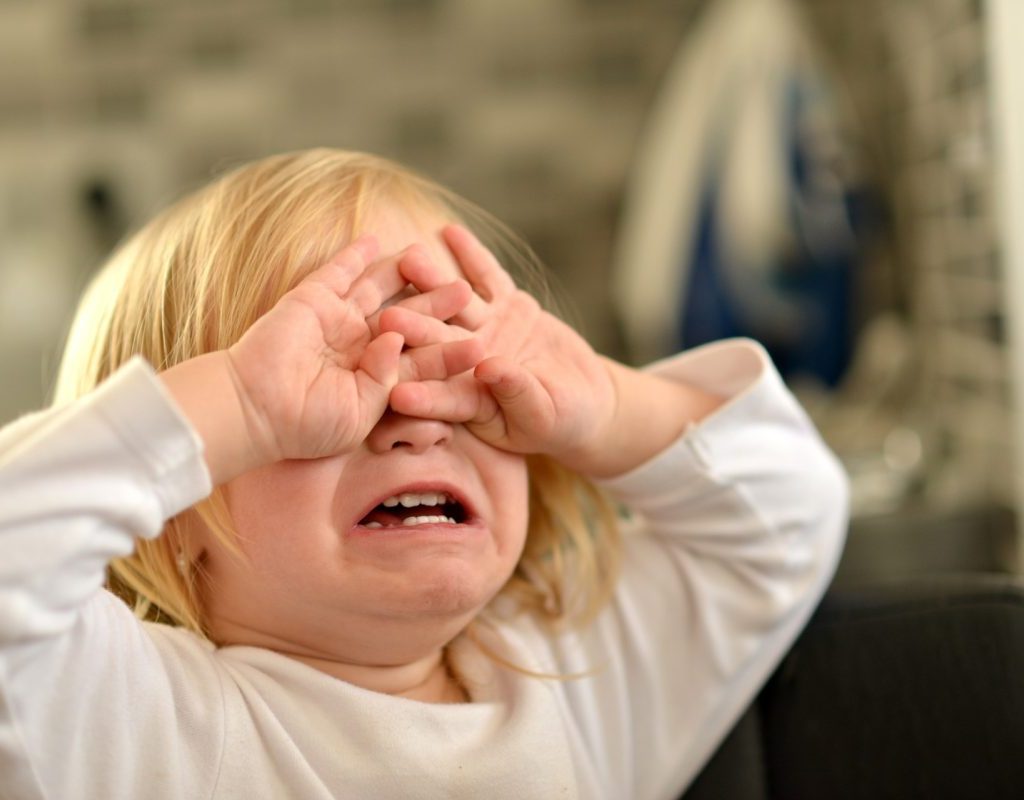Children push boundaries to know what their limits are, so it’s important to let kids know when they do something that’s not okay. You may be alarmed when you first see your toddler start the dreaded hitting, pushing, or kicking that can be common at their age, but there are things you can do to help them curb this new behavior.
It may be mortifying for you to see your toddler pushing others, but it’s happened to many more parents than you think and isn’t a reflection of bad parenting. Take a deep breath and read on.

What causes toddlers to hit
“I call toddlerhood the ‘hitting stage’ of development because this behavior can be common in children between 1 and 2 years old,” Deborah Glasser Schenck, Ph.D., director of Family Support Services at Nova Southeastern University says. It’s normal and common, so the most important thing is not to stress out too much if you’ve noticed your toddler hitting other kids (or you). The stress won’t help.
Why is this the “hitting stage”? Toddlers probably don’t understand that they’re hurting the one they hit and don’t have the impulse control to stop themselves even if they did. Just like they put things in their mouths as babies to figure them out, now they’re interacting with others in different ways to find out what reaction it will get. They’re just starting to figure out that others have their own feelings, and the more they realize that as they grow, the easier it will be to explain why it’s important to stop hurting others.
Toddlers who don’t yet have the verbal skills to explain what they want or how they feel act out through tantrums, hitting, and other physical behaviors because of the frustration of not being understood. The more verbal skills they gain, the less they’ll use physical modes of communication.
How to make your toddler stop pushing
To solve the problem, you first need to completely understand it even more specifically than what is explained above. When your toddler hits, are they:
- feeling overwhelmed?
- imitating something they’ve seen another kid do?
- trying to express frustration?
- cranky?
- having a toy taken from them?
- testing?
You may not be able to tell the reason right away in every case, but see if you can hone in on any patterns. Does your child always push if they are not getting what they want or does it seem out of nowhere? The first could be expressing frustration and the latter could be learning boundaries. Notice all you can from context to see what the cause may be, while keeping in mind that the reason might simply be “being a 1-year-old.”
Next, see if the cause lines up with a solution. If your toddler is testing what’s allowed, you’ll just need to calmly say “we don’t hit” and redirect to doing something else each time until they grow out of it. If they are flailing because they are hungry, tired, frustrated, or scared, the answer is likely the same (“we don’t hit,” redirect, and wait for them to develop as they grow older). You can teach a few signs for them to communicate nonverbally to help: Just “hungry,” “more,” and “all done” will solve a lot of issues before they happen.
You can also practice playtime to show them how to respond when a peer takes their toy away. Keep modeling how you want them to react gently and using words.
Never hit your child in response to their hit and make sure they’re not watching any TV or consuming other media where they are seeing hitting that they want to imitate.

Repetition and patience
Discipline won’t work for a 1-year-old the way it will for a 4-year-old. Reasoning can only go so far, so redirection is your best bet for most unwanted behaviors in young toddlers. When you see a hit happen, tell them “no,” then show them gentle touch. Getting mad will just give your child a reaction they might want to see again (any reaction is an interesting reaction to them, positive or negative; it’s all attention), so stay calm while firmly saying “no hitting.”
Since this behavior is something they’ll often grow out of as they develop understanding and restraint, it can be just as simple as saying “no, no hit” every time they hit until they stop. Toddlers need to test something dozens and dozens of times before they truly learn it (or their brain develops enough to be capable of learning it). It’s frustrating, but staying calm and patient while you continue to redirect will likely solve the issue.



